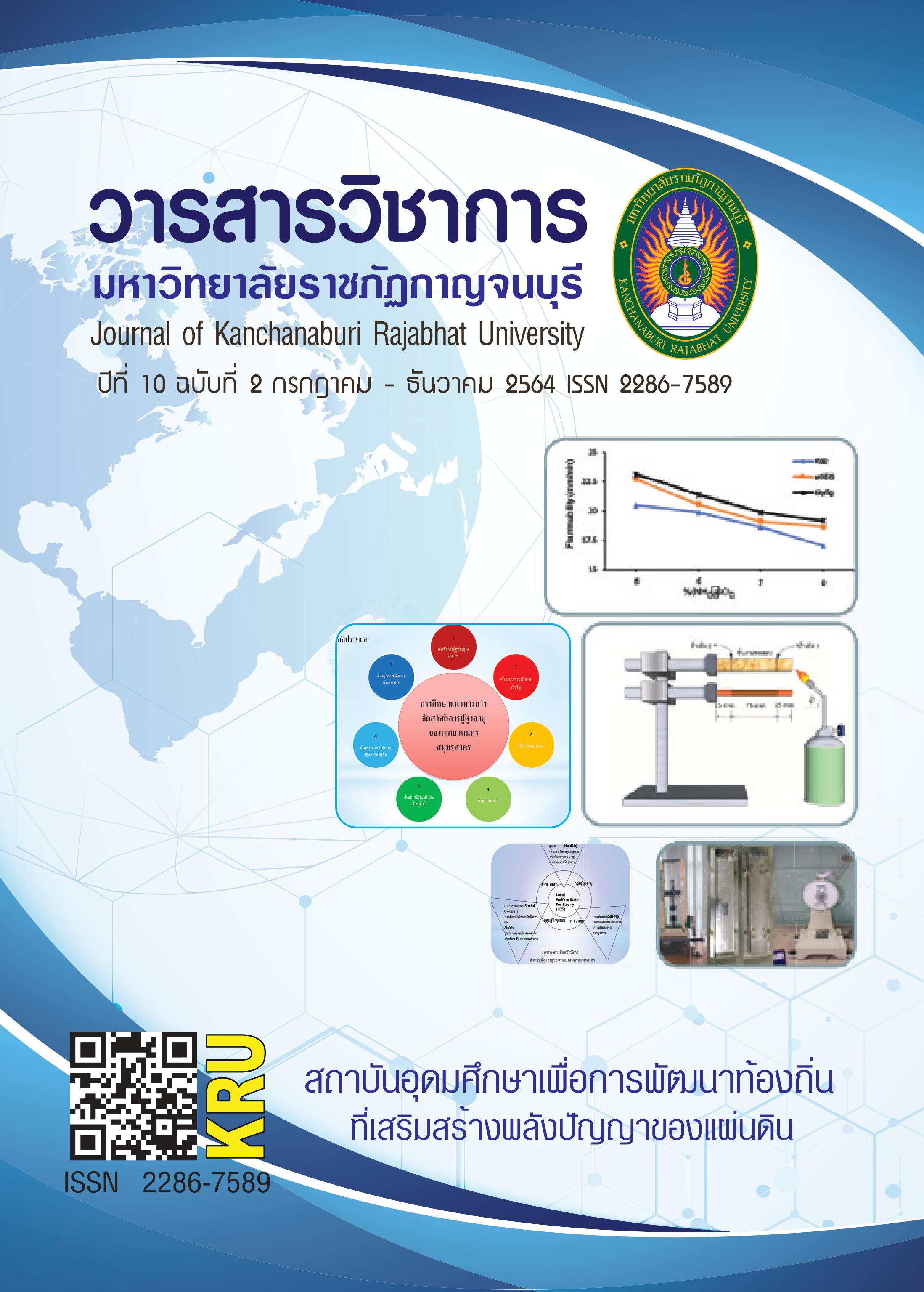STUDENTS’ MOTIVATION IN GERMAN LANGUAGE LEARNING AT INTERNATIONAL SCHOOL OF TOURISM, SURATTHANI RAJABHAT UNIVERSITY
Main Article Content
Abstract
The objectives of this research were to study the motivation in learning German language of students in International School of Tourism, Suratthani Rajabhat University, and to study the relationship of the students’ intrinsic motivation factors and extrinsic motivation factors. The target group was 54 students who enrolled in the German language courses in the second semester of 2018 academic year. This study was a quantitative research study using a questionnaire as the major research tool. Frequency, percentage, mean, standard deviation, and Pearson’s product moment correlation coefficient were used to analyze the data. The results found that the students’ motivation in learning German language was at a high level. Intrinsic motivation was positively correlated with extrinsic motivation. Furthermore, this study revealed that the students believed that German language is one of the most important foreign languages. However, they thought that it was difficult to learn German and to obtain a good grade. It was recommended that integrated learning in the classroom using a variety of methods and activities should be continuously organized in order to motivate and encourage the students’ participation, practice, assertiveness, and analytical thinking in class. Moreover, this could also help enhance their language skills.
Article Details
References
ณภัทร วุฒิวงศา. (2557). กลยุทธ์สร้างแรงจูงใจ: การพัฒนาทักษะภาษาอังกฤษ. วารสารนักบริหาร, 34(1), 89-97.
ทรงศักดิ์ ภูสีอ่อน. (2552). การประยุกต์ใช้ SPSS วิเคราะห์ข้อมูลงานวิจัย (พิมพ์ครั้งที่ 3). มหาสารคาม:
มหาวิทยาลัยมหาสารคาม.
ทิพย์ธิดา สกุลทองอร่าม, อมรรัตน์ ค้าทวี และวรรณวิศา ใบทอง. (2561). แรงจูงใจในการเรียนภาษาเกาหลี:
กรณีศึกษาของนักศึกษาวิชาเอกภาษาเกาหลี มหาวิทยาลัยหอการค้าไทย. รายงานการประชุมวิชาการ
และนำเสนแผลงานวิชาการระดับชาติ UTCC Academic Day ครั้งที่ 2, 1559-1612.
ปริลักษณ์ กลิ่นช้าง และ สุภาภรณ์ สุวรรณโอภาส. (2559). แรงจูงใจและกลวิธีการเรียนรู้ภาษาเยอรมันของนักเรียน
มัธยมศึกษาตอนปลายในภาคใต้ของไทย. วารสารวิชาการ คณะมนุษยศาสตร์และสังคมศาสตร์, 12(2), 35-70.
ยุพกา ฟูกุชิม่า, กนกพร นุ่มทอง และ สร้อยสุดา ณ ระนอง. (2556). ความนิยมในการเรียนภาษาญี่ปุ่นและภาษาจีน
ของนิสิตมหาวิทยาลัยเกษตรศาสตร์: แรงจูงใจแตกต่างกันอย่างไร. วารสารญี่ปุ่นศึกษา, 30(1), 27-40.
ศุภิกา นิรัติศัย. (2561). ทัศนคติ แรงจูงใจ และพฤติกรรมการเรียนภาษาอังกฤษของนักศึกษามหาวิทยาลัยราชภัฏ
ภูเก็ต. วารสารมนุษยศาสตร์และสังคมศาสตร์, 9(2), 138–170.
สุกัลยา แฉล้ม และ อัญชลี โตพึ่งพงศ์. (2562). แรงจูงใจในการเรียนของนักศึกษามหาวิทยาลัยขอนแก่นที่เรียน
ภาษาเยอรมัน. วารสารภาษา ศาสนา และวัฒนธรรม, 8(1), 71–94.
Anderson, R. (2018). Second Language Learning Motivation. Culminating Projects in Teacher
Development. 30. https://repository.stcloudstate.edu/ed_etds/30.
Eltoft, A. S. (2018). Motivation in Language Learning. A Qualitative Study of Teachers’ Views
on the Importance of Including Pupils’ Interests and Real-life Context in the
Teaching of English. Master’s thesis. Faculty of Humanities, Social Science and
Education. The Arctic University of Norway.
Tajima, K. (2014). Comparison of Factors Influencing Thai Students’ Choices of a Minor Subject
between Japanese and Chinese. Panyapiwat Journal, 5(Special Issue May 2014), 1-12.


